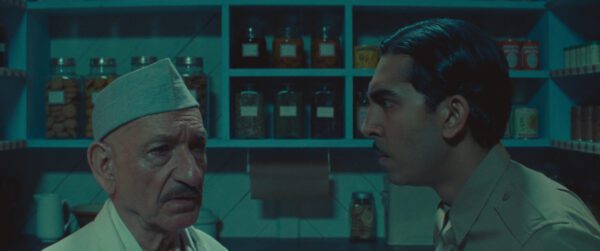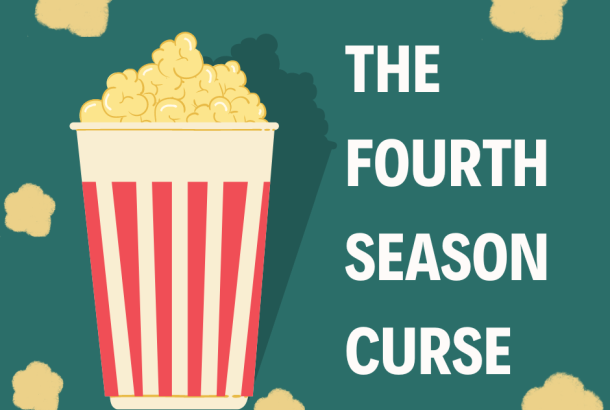Wes Anderson’s medley of Roald Dahl short films: Theatrical style combines with Dahl’s fantasy to varying effects

Wes Anderson has brought the world of Roald Dahl to life once more with four new short film adaptations. Taken from Dahl’s vast collection of short stories, Anderson chose The Wonderful Story of Henry Sugar, The Swan, The Rat Catcher, and Poison to be his latest works for Netflix.
The Wonderful Story of Henry Sugar
The first of the short films is a near-faithful retelling of the story of the same name by Roald Dahl. Anderson is known to be a fan of Dahl’s writing, with the revered Fantastic Mr Fox being his first adaptation of Dahl’s stories. This is one of Anderson’s most visually innovative films, bearing some semblance to the style of theatre whilst also reinforcing his bestowed title of ‘cinematic auteur’.
Henry Sugar tells the fantastical story of its titular character’s misadventures into the world of gambling, clairvoyance and philanthropy. With a short running time of 37 minutes, the story starts and ends with Ralph Fiennes’ witty monologues as Roald Dahl himself, representative of storytelling in its purest form. This helps the film retain its joyous quality, recreating a child-like awe that is prevalent throughout other stories by Dahl. Despite this, it has a repetitive nature, therefore begging the common question of Wes Anderson’s work; is it truly style over substance?
The feature of storytelling and continuous monologues can be seen as adding a special touch to the film, making the audience feel engrossed by the magical quality of Dahl’s writing style. Although the plot is comprehensive, Anderson is largely relying on the visually pleasing aspects of the film. The film felt somewhat convoluted at times, as missing one line of dialogue could easily confuse the audience. It becomes very clear that Anderson is forgetting the importance of telling a story without just saying it to the audience, a quirk which gets dull quite quickly.
At the same time, this doesn’t take away from the film’s originality which is key to why many adore Wes Anderson’s filmography. Nevertheless, the flaws within The Wonderful Story of Henry Sugar still makes the film one of his weakest projects and ultimately leaves you asking for less style and more substance.
The Swan
The Swan describes one day in the countryside when young bully Ernie is gifted a rifle for his birthday and after getting bored of shooting small birds, he decides to torment classmate Peter Watson. After loving Anderson’s aforementioned adaptation of Fantastic Mr. Fox, I’d hoped to enjoy his latest short films but, in my opinion, they missed the mark.
As with the other short films, The Swan features a narrator who breaks the fourth wall, in this instance played by Rupert Friend as an older Peter Watson. Friend brings more life to this short film with his accents and characterisation when compared to the other film’s narrators which tend to stick to a classic deadpan recital of the tale. This coupled with the use of stagehands and a simplistic set made the film feel as if it was produced with COVID-19 restrictions in mind preventing largescale productions.
The reproduction of Wes Anderson’s particular style dulls the trauma and shock that the original short story captured with its grotesque butchering of the swan and near torture of Peter Watson, both of which haunted me as a child. Whilst Friend was excellent as the narrator, the overall impact of the short left me wanting more.
However, on the positive side, Ralph Fiennes portrays an excellent Roald Dahl. The setting in the shed where he wrote with its warm lighting and tight focus a la Anderson works nicely. However, this scale just isn’t as applicable to depict the range of emotions and atmospheres created by Dahl’s short stories.
The Rat Catcher
The Rat Catcher is the third chapter of these Netflix-exclusive shorts. It follows a mechanic (Rupert Friend), a rat catcher (Ralph Fiennes) amusingly mimicking a rat himself and a journalist (Richard Ayoade) who narrates the story as they try and exterminate the rats of the village. Interestingly, it’s played out in a highly theatrical way breaking the fourth wall and employing some intriguing closeup shots. The short is playful and relies on the viewer’s imagination to visualise certain aspects of the film as actors often mime important objects. Despite these experimental ways of storytelling, it’s limited to Anderson’s rigid and monotone style which is ultimately to its detriment.
The film is filled with colourful yellow hues yet the way it tells its story is dreary and tangled. Its highly stylised form makes it hard to keep up with the simple plot. Ironically, it ends up feeling like an overdone parody of a classic Anderson film condensed in its 17-minute run time. Ayoade however is a perfect match for this short film, his well-known deadpan comedic deliveries and his endearingly geeky suits fit seamlessly in the world of Wes Anderson.
Poison

Poison applies Anderson’s unique directorial touch to one of Roald Dahl’s eccentric narratives about a snake that may or may not exist.
The short stars Benedict Cumberbatch as Harry Pope, who lays on his back for “hours and hours and bloody hours and hours,” afraid to move or speak too loudly for fear of being bitten by a poisonous snake which lies ominously asleep on his stomach. During this, he’s aided by a lovable Ben Kingsley as Dr. Ganderbai. In a tense but comical 17 minutes, the heart of the film is undoubtedly Dev Patel’s character ‘Supervisor Woods’ – Patel’s razor-sharp dialogue and precise yet theatrical movements feel right at home in Anderson’s signature style, and calls for further collaboration between the two in the future.
The use of a constant background ticking noise throughout the short builds incredible tension, which Cumberbatch skilfully conveys through his restricted physical movement with expert facial expression. Anderson creates strong dramatic immediacy, making for a dynamic and engaging viewing experience.
However, the emotional substance of the film arrives in its final two minutes, as Cumberbatch’s character suddenly explodes in a violently racist verbal assault on Kingsley’s character. The previous tension is shattered as a new emotional tension replaces it and a seemingly light-hearted tale of a near-miss with a snake becomes a reflection of racism in British-ruled India.
In Poison, Wes Anderson once again showcases beautiful cinematography but this time with a profoundly rich centre, resulting in a truly impactful short film.
All four of Wes Anderson’s latest shorts are available to watch now on Netflix







